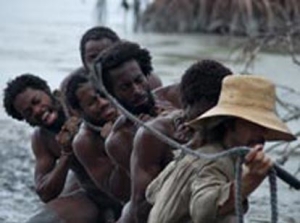PUTNEY DEBATER
A personal blog
Fidel: past mistakes & advice to Ahmadinejad
Jeffrey Goldberg at The Atlantic reports a meeting with Fidel Castro in which Fidel made some extraordinary statements about the failure of Cuba’s economic model and his own past mistakes, including his position at the time of the missile crisis in 1962. He has not renounced his revolutionary principles. Goldberg writes: ‘When I asked him, over lunch, to answer what I’ve come to think of as the Christopher Hitchens question – has your illness caused you to change your mind about the existence of God? – he answered, “Sorry, I’m still a dialectical materialist.” ‘ However, he admits that Cuba’s economic model doesn’t work. He also had some very pointed things to say about Iran’s Ahmadinejad who he says should stop slandering the Jews, while his advice to Israel is to give up its nuclear arsenal. The links can be found on my other blog, Michael’s Digest.
Walter Benjamin and the iPad
or, Advice for Writers in the Age of Digital Orthography
In his book of aphorisms, One Way Street, published in 1928, Walter Benjamin has a remarkable premonition. ‘The typewriter’ he says, ‘will alienate the hand of the man of letters from the pen only when the precision of typographic forms has directly entered the conception of his books. One might suppose that new systems with more variable typefaces would then be needed. They will replace the pliancy of the hand with the innervation of commanding fingers.’ [p63-4]
This is exactly what started to happen with the advent of the desktop computer six decades later, and with the internet, email and the web, digital command extended into a virtual domain which even a prescient fellow like Benjamin couldn’t have imagined. Read more
Martí according to Pérez
Screening at the Barbican on September 25, 2010
For his new film on the Cuban national hero Martí, Fernando Pérez has returned to classical narrative after a run of offbeat movies, both fiction and documentary. In Martí, el ojo del canario (Martí: The Eye of the Canary), he reinvents the childhood and adolescence of Cuba’s nineteenth century national hero José Martí, covering the years he lived in Cuba before being sent into exile for political sedition at the age of seventeen. Not a subject to be approached without care, since Martí is a figure, as Guiteras points out on La Joven Cuba, who is adored and put to use by contrary political tendencies to legitimise their own position. Read more

